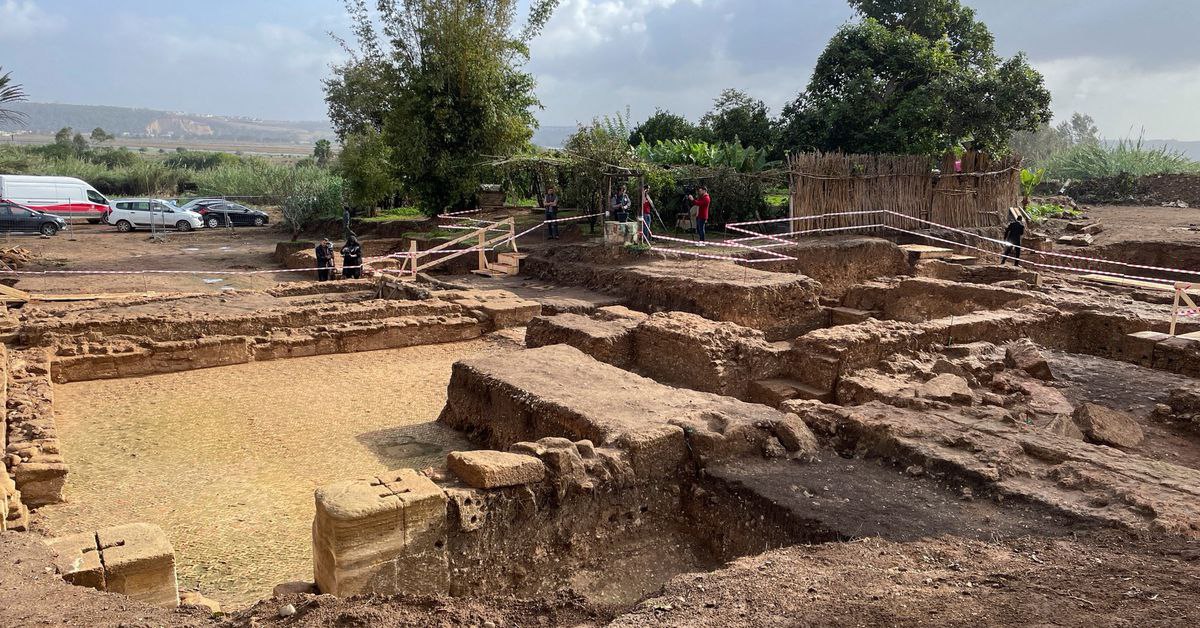Moroccan archaeologists said on Friday they uncovered a Roman-era site in Rabat containing a port district, a bath and a cemetery dating back to the second century.
The archaeological site, now the third largest in Morocco, will offer insight into the lives of Roman settlers and romanised Moroccans or Mauro-Romans in that era, lead archaeologist Abdelaziz El Khayari said at a news conference on site.
The Roman-era bath spans over 2000 square meters (21,527 square feet) resembling imperial counterparts in Rome, he said.
Archaeologists also found a second century headless statue of a Roman deity, he said, noting that when ancient Moroccans adopted Christianity around the fifth century it was a common practice to behead statutes representing Roman gods.
Excavations, launched in March, are ongoing to find the port and other parts of what is believed to be one of the largest Roman towns in the country, not far from the Bouregreg river and the Atlantic coast, he said.
The newly uncovered monuments are an extension of a nearby Roman-era site and tourist attraction, Chellah, where the Muslim Marinide dynasty built a fortified necropolis in the 13th century.
The archaeological site, now the third largest in Morocco, will offer insight into the lives of Roman settlers and romanised Moroccans or Mauro-Romans in that era, lead archaeologist Abdelaziz El Khayari said at a news conference on site.
The Roman-era bath spans over 2000 square meters (21,527 square feet) resembling imperial counterparts in Rome, he said.
Archaeologists also found a second century headless statue of a Roman deity, he said, noting that when ancient Moroccans adopted Christianity around the fifth century it was a common practice to behead statutes representing Roman gods.
Excavations, launched in March, are ongoing to find the port and other parts of what is believed to be one of the largest Roman towns in the country, not far from the Bouregreg river and the Atlantic coast, he said.
The newly uncovered monuments are an extension of a nearby Roman-era site and tourist attraction, Chellah, where the Muslim Marinide dynasty built a fortified necropolis in the 13th century.
